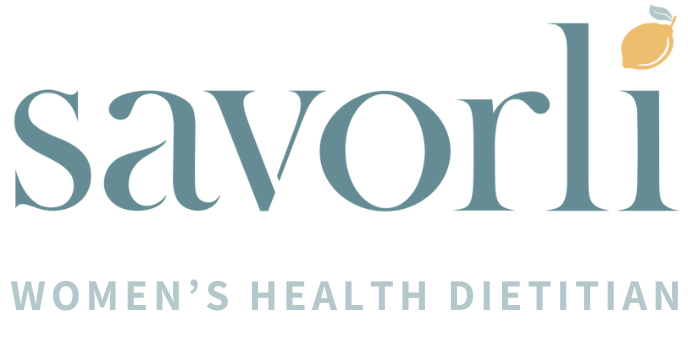Creatine and Motherhood: What Every Mom Should Know
Disclaimer:
This article is for informational purposes only and does not constitute medical advice. It is not intended to diagnose, treat, cure, or prevent any disease. Always consult with your healthcare provider or a qualified nutrition professional before starting any new supplement, especially if you have underlying health conditions or are taking medication.
When you think of creatine, you probably picture bodybuilders and gym bros — not moms. But did you know creatine might be just as important for pregnancy, postpartum recovery, and even mood?
Let’s get into it!
What is creatine, anyway?
Creatine is a natural compound your body makes from amino acids. It’s found mostly in your muscles and brain, where it helps create quick energy (ATP).
Your body makes some, and you get some from food (mainly meat & fish). But women naturally store less creatine than men, and it drops even more during pregnancy. That’s why some researchers call it a “conditionally essential nutrient” for moms.
Why creatine might help during pregnancy
Supports baby’s growth & protects the brain
Animal studies show when moms get adequate creatine, their babies are better protected from low-oxygen events during birth (which could lower the risk of cerebral palsy). It even helps protect tiny kidneys, muscles, and the diaphragm.
Keeps your uterus & placenta running smoothly
Growing a baby takes a TON of energy. Creatine could help fuel all that rapid cell growth.
Postpartum: mood, energy & “mom brain”
Can creatine help with postpartum depression?
There’s not a ton of research on PPD (Postpartum Depression) specifically yet, but studies in women show creatine can improve depression outcomes — even alongside antidepressants.
Helps with sleep deprivation & brain fog
New moms are basically professional sleep-deprived zombies. Some early research shows creatine might help keep your brain sharper when running on little sleep.
Is it safe?
Creatine is one of the most researched supplements in the world, with decades of safety data — even in women ages 16–67.
No serious side effects have been found, though some people get mild bloating or stomach upset.
During pregnancy, researchers think it’s very promising but still want bigger human studies (animal data so far has been pretty encouraging).
As always, talk to your OB, midwife, or health team before starting anything new and trust your gut before taking any supplement.
Who might want to wait on creatine?
Creatine is pretty gentle, but it’s not always the first step for everyone. You might want to hold off or ask your provider first if:
You’re super overstimulated or anxious — if your nervous system feels “revved up,” you might want to calm things down first and focus on mineral rebalancing.
You’re not consistent with hydration or minerals (like sodium, potassium, magnesium), since creatine pulls water into your muscles and could make dehydration or cramping worse. Start with getting your minerals tested here
What to focus on before adding creatine:
It is always best to build a solid foundation first.
✅ Eating enough protein & calories (so your body has raw materials to work with)
✅ Getting your minerals in — magnesium, potassium, sodium & calcium — to help with hydration, muscle function, and stress
✅ Balancing blood sugar with regular meals & snacks
✅ Supporting digestion (so your body actually absorbs creatine & nutrients well)
✅ Working on gentle nervous system support: sleep, breathwork, sunshine, slowing down when possible
Once those are steady, creatine could be the cherry on top.
What foods are rich in creatine?
Creatine is only found in animal foods
Beef (especially steak & ground beef)
Pork
Lamb
Wild game meats (elk, venison, bison)
Fish and Seafood (herring, salmon, tuna, cod, sardines)
How much should moms take?
3-5 grams is a typical dose. Always pair it with good hydration and notice how it impacts your mood, bloating, and overall digestion.
My favorite creatine supplements:
Thorne - Get it at a discount on my fullscript account
Momentous - Get an additional 10% off with code LIVEHAPPY
The bottom line:
Creatine is way more than a gym supplement. For moms, it could mean:
✨ Support for baby’s growth and development
✨ More stable mood
✨ Less brain fog postpartum
✨ More clarity and alertness even after nights of poor sleep
✨ Stronger muscles and bones as you age
It’s not a magic pill (nothing is), but it might be a simple way to feel sharper and more energized during demanding seasons of life.
Want to read the studies yourself?
Here are some great articles for all my science loving ladies:
Creatine supplementation in Women’s Health https://pmc.ncbi.nlm.nih.gov/articles/PMC7998865/
Creatine Metabolism in Female Reproduction https://www.mdpi.com/2072-6643/13/2/490
Common Question and Misconceptions about Creatine https://pmc.ncbi.nlm.nih.gov/articles/PMC11703406/
Creatine Supplementation During Pregnancy https://pmc.ncbi.nlm.nih.gov/articles/PMC4007139/
Nutritional supplementation in pregnant, lactating women and young c \hildren following a plant-based diet: A narrative review of the evidence https://www.sciencedirect.com/science/article/pii/S0899900725000966?via%3Dihub
Effects of Creatine Supplementation on Brain Function and Health
